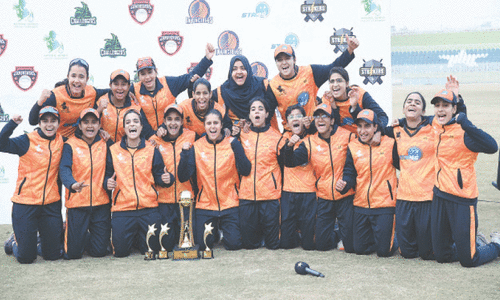BERLIN: International sports federations must adapt to the rapid transformation in world sport, including growing athlete autonomy, or risk losing control of the industry, a report said on Thursday.
The report, titled ‘The Future of Sport’, was conducted by the Association of summer Olympic international federations (ASOIF), which groups the games’ governing bodies.
It is primarily based on an aggregation of opinions from direct interviews with influential people and leaders from a variety of backgrounds related to sport, business and public authorities, ASOIF said.
It said world sport, affected by rapid urbanisation, population growth and scarce resources among others, was also being reshaped by an increase in athletes’ autonomy, private investment and digital media as well as powerful athletes operating almost as commercial entities.
“The motivation is to understand a bit better what will happen in the future of global sport,” ASOIF president Francesco Ricci Bitti said on a conference call on Thursday.
“We believe the results [of this report] will help international federations better understand, anticipate and react to the changes and trends confronting them. In fact, some of the outlined future scenarios may serve as a wake-up call.”
Recent doping and corruption scandals have hit major federations, including that of football (FIFA) and athletics (IAAF) among others, while Russia saw its own major doping affair following the 2014 Sochi Winter Olympics, compromising the credibility of anti-doping efforts.
Athletes in several countries are also demanding more rights and a bigger share of profits from major competitions while also seeking to set up organisations that rival international federations, as in the case of swimming or basketball.
On Wednesday, German athletes scored a major victory over the International Olympic Committee, earning more advertising rights during the Olympic Games following a German Cartel Office decision.
That decision could now be replicated in other countries in the European Union and possibly beyond, cutting deeper into the revenue streams of federations and the IOC during the Games.
Among the things federations must do, the report said, is to “demonstrate an exemplary standard of governance throughout their structures and processes in order to maintain the confidence of all stakeholders”.
With many young people turning to other forms of recreation and entertainment such as electronic games, federations must invest in grassroots to boost participation levels while also utilising new technology to engage with their fan base.
They must also be more commercially-driven, it said.
Published in Dawn, March 1st, 2019











































Dear visitor, the comments section is undergoing an overhaul and will return soon.